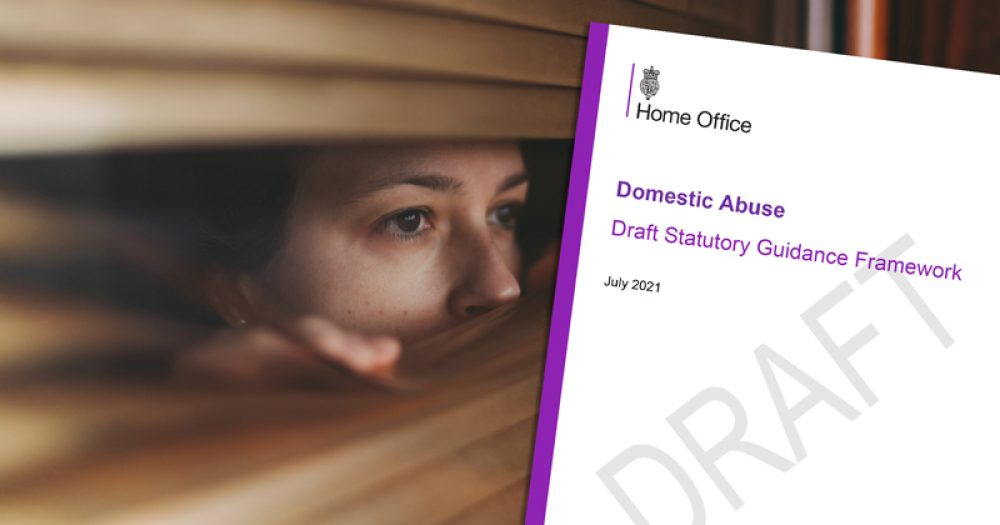Colleges and other education organisations are being asked for views on new statutory guidance on domestic abuse by the Home Office.
The consultation is being aimed at all organisations with a statutory responsibility for safeguarding, including local authorities, Jobcentre Plus, police forces as well as all education settings from early years to higher education settings.
New guidance is being drafted following the successful passage through Parliament of the Domestic Abuse Act 2021, which received Royal Assent in April. The act introduces, for the first time, a legal definition of domestic abuse which includes emotional abuse, controlling and coercive behaviour and economic abuse as well as physical abuse.
Lockdown measures introduced in response to Covid-19 have been attributed to a sharp rise in domestic abuse. Between March 2019 and March 2020, 1.6 million women and 757,000 men experienced domestic abuse, which is a seven per cent increase on previous figures according to the National Crime Survey. The National Domestic Abuse Helpline saw a 65 per cent increase in calls between April-June 2020 compared to January-March 2020 before lockdown measures were introduced.
The Home Office hope that this new statutory guidance will help education settings firm up their own safeguarding policies and procedures with clear information about what domestic abuse is, how to identify it and how to respond. Education settings will also be asked for views on inter-agency working locally, including on new Domestic Abuse Local Partnership Boards which local authorities are now required to set up.
The consultation can be found on the Home Office website and closes on 14th September.







Totally support this initiative. The impact on students who have tough starts in life is profound. Abuse is unacceptable in any form, and the level of bullying, abuse and harassment that occurs in the work environment should also be considered.
DFE endorsed many approaches and so has this newspaper in hounding (in the name of the public interest) colleges and staff. Resulting in significant mental health issues, and in effect abuse. The opportunity to ‘have your say’ in any media outlet is pointless after being hit.
The same applies to students being abused. They are damaged and the recovery takes years, and sometimes never fully restored.
I hope the sectors responds and also those ‘abused’.
Speaking on behalf of staff and students, I have been mentally abused when I was younger and also whilst I was working in further education in administration. This report I truly hope can influence the future and make way for others to have a better chance. FE often represents the only chance for young and older people to retrain and get their confidence back. The last 6 years has seen some terrible management decisions and bullying on staff in the name of standards. Students see this and that is not right.
Growing up I faced abuse daily and many people are scared to come forward. I hope people use this and good on the other commentator and FEW for putting this up.
Thank you
The new legal definition of domestic abuse is welcome. I’ve worked with hundreds of women over the years who have been financially and emotionally manipulated by their husbands and partners. There’s always been a sense from them that it’s never been serious enough to report because the abuse has not always been physical. I didn’t know before now what the requirements were going to be on local authorities so I’m glad I saw this.
Can ITPs respond? We’re not on the education list.
Hi Emma
Yes – The Home Office has told us that, “persons working in private training providers who deliver publicly funded education and training may be persons exercising public functions to whom guidance issued under this section relates”